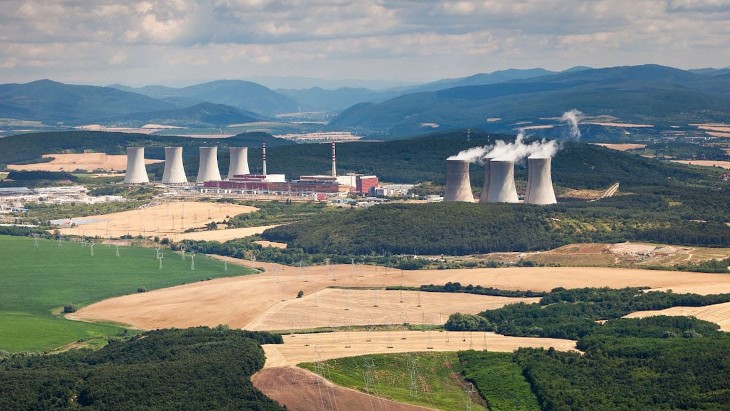"It is the consistency of ÚJD that will ultimately be the main factor in dispelling any doubts," concluded Economy Minister Karol Galek after welcoming the draft decision by the Nuclear Regulatory Authority (ÚJD).
ÚJD published its draft decision to permit the commissioning of Mochovce 3 on 24 January, noting that it will accept public comments until 21 March.
Mochovce is a nuclear power plant on the Hrone river about 95 kilometres east of Bratislava. Two VVER-400 reactors have operated there since 1998 and 2000 and a long-running completion project should see two further units join them. The plant is owned and operated by Slovenské elektráne.
In December 2016, Slovenské elektráne applied for licences to commission Mochovce 3 and 4, to receive the fresh nuclear fuel they would need to start and to operate radioactive waste storage facilities as 'early use' commissioning activities.
However, ÚJD said that there were shortcomings in those submissions "caused by the state of readiness of the Mochovce 3 and 4 nuclear facility to perform the required tests and to document their results" and this was the principal reason for the licensing delay. Slovenské electráne had addressed these issues by February 2018.
Meanwhile, ÚJD received an appeal against its decisions so far from Austrian anti-nuclear group Global 2000, and the regulator raised this with its 'second instance' authority, the President of ÚJD. The contested decisions were "examined in their entirety", said ÚJD, and the appeals were rejected in two separate decisions.
In February 2020, ÚJD published a positive draft decision on commissioning Mochovce 3 and again Global 2000 responded in the public comment period. This resulted in extensive inspections of Mochovce 3's piping. In May 2021, ÚJD decided to issue the commissioning permits for that unit, which again was appealed by Global 2000.
Now, ÚJD has announced its draft decision to uphold the May decision to issue the commissioning permits, with all avenues for appeal exhausted.
Global 2000 said it was not surprised by ÚJD's decision. The group noted that it is still pursuing legal action begun in 2017 against ÚJD which claims the amount of technical information redacted from public documents contravenes Aarhus Convention principles on sharing environmental information.





_87299.jpg)
_52351.jpg)








